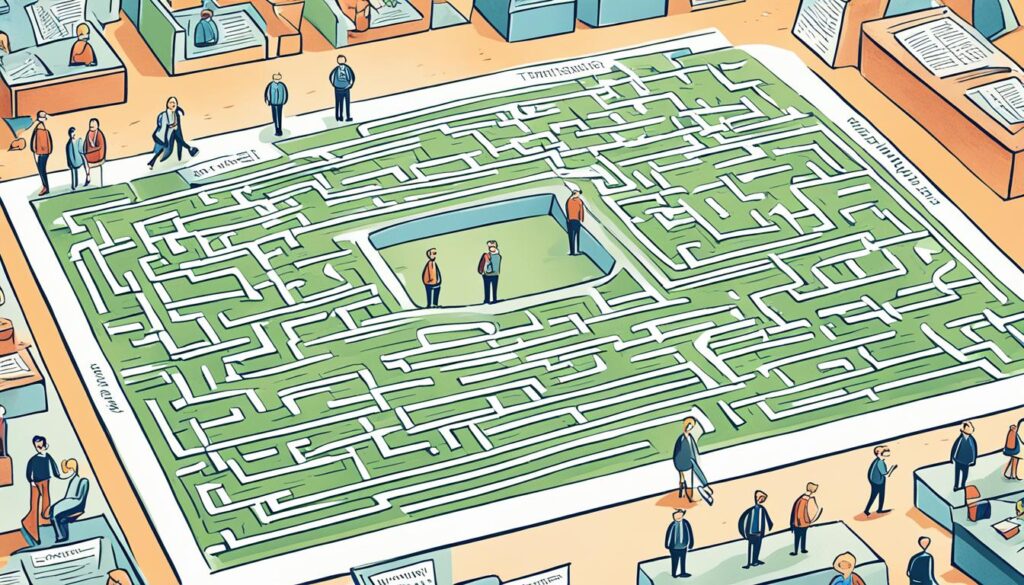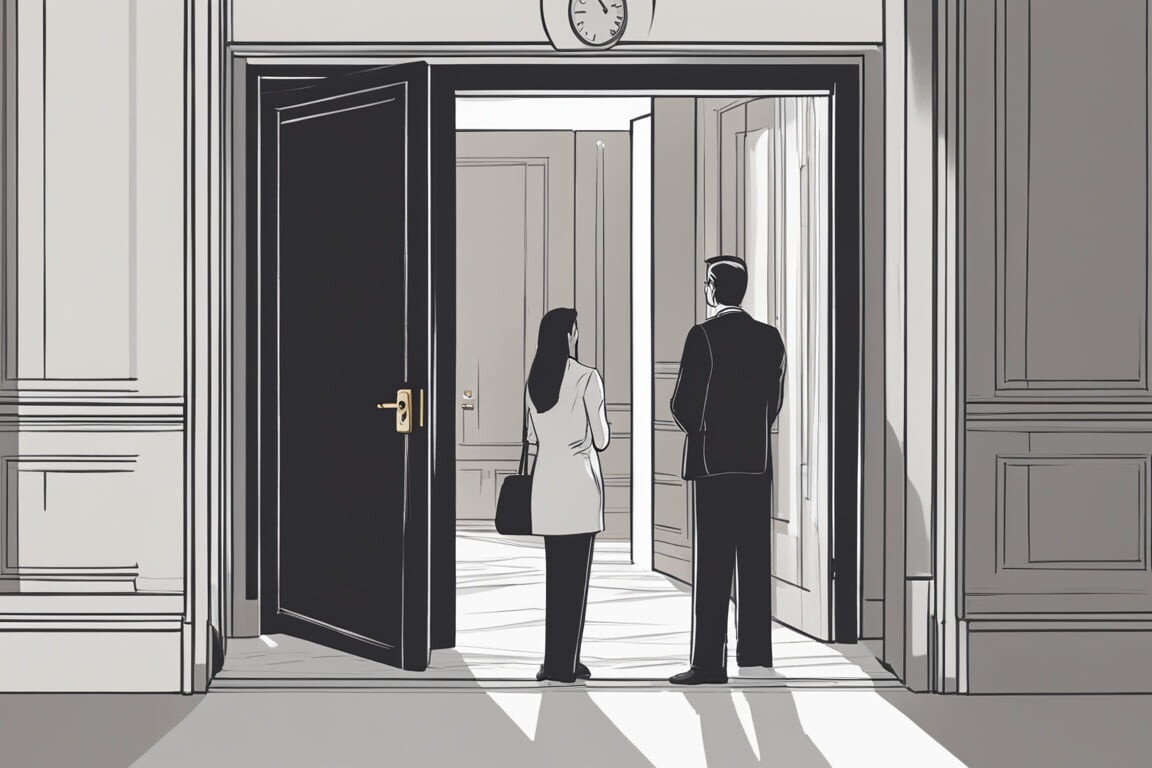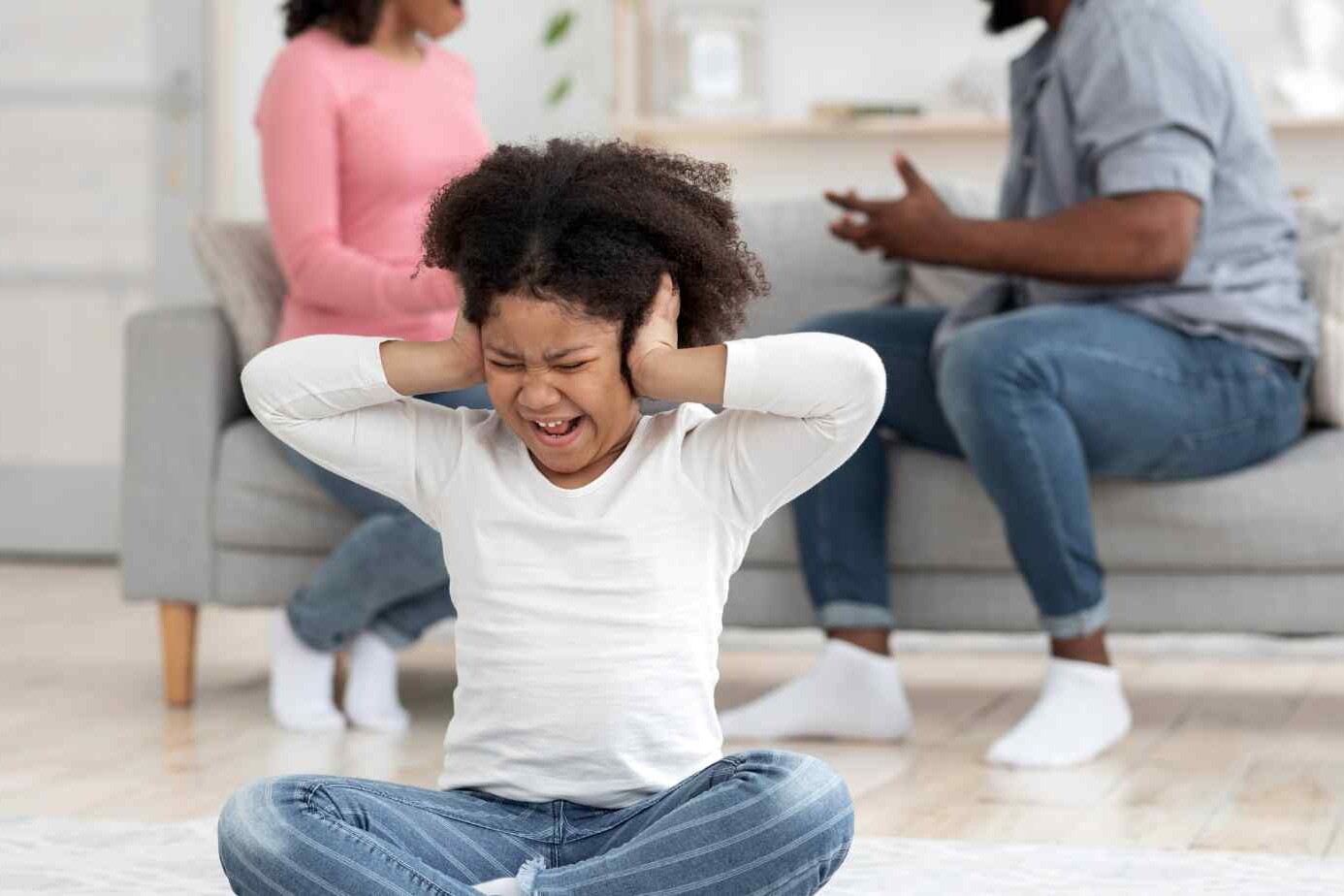As an adult, you might feel scared and worried when you think about being away from someone you love. This feeling is known as separation anxiety disorder. It’s not just for kids; many adults deal with it too. It can make everyday life and relationships harder.
Separation anxiety in adults means you’re really scared of being away from someone close, like a partner, parent, or best friend. You might worry a lot about their safety or feel sick when you’re apart. This anxiety can stop you from doing well at work, making friends, and being independent.
If you’re facing separation anxiety, know you’re not alone. Many people deal with it, and there’s help available. With the right support and treatment, you can handle your feelings better. By learning about the causes, spotting the signs, and getting help, you can start to overcome separation anxiety.
Table of Contents
ToggleWhat is Separation Anxiety Disorder in Adults?
Separation anxiety disorder in adults is a mental health issue. It makes people fear being away from someone they are very close to. This fear is usually for a family member or romantic partner. It can really change how an adult lives and connects with others.
Symptoms and Signs of Adult Separation Anxiety
The main signs of separation anxiety disorder in adults are:
- Feeling very worried and anxious when you’re apart from someone you love
- Always thinking about bad things happening to the person you’re attached to or to yourself when you’re apart
- Not wanting to be alone or leave the person you’re close to
- Feeling sick, having headaches, and trouble sleeping because of it
- Having nightmares about being separated
How it Affects Daily Life and Relationships
Adults with this disorder find it hard to be alone, keep up good relationships, and do well at work or school. They might avoid doing things that mean being away from their loved one. This leads to feeling ashamed, embarrassed, and helpless.
This disorder can really stop an adult from living a happy and independent life.
Causes and Risk Factors of Separation Anxiety Disorder in Adults
The exact reasons for separation anxiety in adults are still being studied. It seems to come from both genes and environment. Knowing what might increase the risk can help us understand it better.
Genetic and Environmental Influences
Some people might be more likely to feel separation anxiety because of their genes. Things that happened in childhood, like tough times or big changes, can also play a part. These events can make separation anxiety more likely in adults.
Life Events and Triggers
Big events in life can make separation anxiety worse or start it. This includes losing someone close, getting sick, or going through big changes like moving or having a child. These changes can make people feel less secure and more anxious when they’re apart from loved ones.
Knowing what causes adult separation anxiety and the risk factors for separation anxiety in adults is key. By tackling these factors, people can get better and have healthier relationships.
Separation Anxiety Disorder In Adults
Excessive Worry and Physical Symptoms
Adults with separation anxiety often worry too much about being away from someone they feel close to. They might always think about their loved one’s safety or fear something bad happening to them when apart. These worries can make them feel sick to their stomach, give them a fast heartbeat, or cause headaches.
Impact on Work, Social Life, and Independence
Separation anxiety can make it hard for adults to do things on their own and live normally. It can affect their work, stop them from being social or traveling alone, and make it hard to be independent. The fear of being apart can lead to feeling alone, problems in relationships, and missing out on personal and career growth.
The effects of excessive worry with separation anxiety can be big, changing an adult’s life a lot. It’s important to understand the issues and find ways to deal with it to keep living a full and independent life.

With the right help and treatment, adults with separation anxiety can get better. They can learn to handle their symptoms, become stronger, and get back their independence and happiness.
Recognizing Separation Anxiety in Adults
It can be hard to spot separation anxiety in adults. The signs might look like normal worries or other mental health issues. But it’s key to know the usual signs of adult separation anxiety. This helps in getting the right treatment and taking back control of your life.
Common Thoughts and Behaviors
Adults with separation anxiety often worry too much about something bad happening to their loved ones. They might also worry they won’t be able to handle being apart. These worries can be way too much and really get in the way of daily life and relationships.
Some common behaviors seen in adults with separation anxiety include:
- Refusing to leave home or avoiding activities that require time apart from loved ones
- Excessive texting, calling, or checking in on attachment figures to ensure their safety and wellbeing
- Experiencing intense distress or panic when faced with separation from loved ones
- Difficulty concentrating or engaging in tasks when separated from attachment figures
If you’re always worried about your loved ones’ safety or feel really upset when you’re apart, it might be separation anxiety. It’s important to recognize this and get help.
Diagnosis and Co-occurring Conditions
To diagnose separation anxiety disorder in adults, experts look at symptoms against the DSM-5 criteria. They check if the person has at least three symptoms like worrying about losing someone, not wanting to be alone, or feeling sick. These symptoms must make daily life hard for at least four weeks.
DSM-5 Criteria for Diagnosis
The DSM-5 gives clear guidelines for diagnosing separation anxiety in adults. To get a diagnosis, people must:
- Worry a lot or feel anxious about being away from someone or a place they feel attached to.
- Have a strong fear or anxiety about losing someone close or something happening to them.
- Not want to leave home or be alone because of fear of being separated.
- Have symptoms that make daily life hard or cause a lot of distress.
- Not have symptoms that fit better with another mental health issue, like a phobia or panic disorder.
Related Anxiety Disorders and Mental Health Issues
Adults with separation anxiety might also have other mental health problems, like other anxiety disorders, obsessive-compulsive disorder, or depression. It’s important to understand how these conditions are linked. A mental health expert can check for other issues and plan the best treatment.
Treatment Options for Adult Separation Anxiety
Dealing with separation anxiety in adults needs a mix of methods. Cognitive behavioral therapy (CBT) is a top choice. It helps people spot and fight negative thoughts and actions that cause anxiety.
Cognitive Behavioral Therapy (CBT)
CBT for separation anxiety includes steps like facing separation bit by bit, learning coping skills, and handling anxious thoughts and feelings. This way, adults with separation anxiety can beat their fears. They can feel more independent and confident.
Medication and Combination Therapy
In some cases, medicines like selective serotonin reuptake inhibitors might be given with therapy to lessen separation anxiety symptoms. Combining CBT with medication works best for treating separation anxiety in adults.
Managing separation anxiety disorder means working with mental health experts to create a plan that fits your needs. With the right treatment, adults can control their symptoms, live better, and keep strong relationships.

Coping Strategies and Self-Help Tips
Dealing with separation anxiety as an adult can be tough. But, with the right strategies and self-help, you can manage your symptoms better. It’s key to have a strong support system for adult separation anxiety.
Building a Support System
Surround yourself with people you trust, like family, friends, and loved ones who get what you’re going through. They can offer emotional support, company, and help when you need it. Joining a support group, online or in person, can also make you feel less alone.
Relaxation Techniques and Mindfulness
Adding relaxation techniques to your daily life can really help with anxiety and stress from separation. Try deep breathing, meditation, or progressive muscle relaxation to calm down. Mindfulness, focusing on the present moment, can also help you deal with anxious thoughts.
Along with professional help, having a self-care routine can boost your ability to cope with self-help tips for separation anxiety in adults. Do things that make you happy, like reading, exercising, or a hobby, to help with coping strategies for adult separation anxiety. By focusing on your well-being and using effective coping methods, you can overcome separation anxiety and feel more in control.
Seeking Professional Help
If you’re an adult dealing with ongoing and severe separation anxiety, it’s key to get help. A mental health expert, like a therapist or counselor, can check your symptoms, give you a diagnosis, and create a plan to help you. They can help you with your separation anxiety.
When to See a Mental Health Provider
You should think about getting help if you worry too much about being apart, feel sick or have panic attacks, avoid doing things, or have trouble in your relationships and work because of your anxiety. Getting professional help can really change how you handle your symptoms and boost your well-being.
Finding the Right Therapist or Counselor
When picking a mental health provider, look for someone who focuses on anxiety disorders and works with adults with separation anxiety. This ensures you get specific and effective treatment for your issues. Spend time researching and talking to potential therapists to find one that suits your needs and likes.
Don’t wait to ask for help with separation anxiety. With the right support and treatment, you can manage your symptoms and take back control of your life.
Conclusion
Separation anxiety disorder in adults is a complex issue that affects daily life and well-being. It’s not just for kids; adults can feel the same fear and anxiety when away from loved ones. This condition can deeply impact your life.
Learning about the causes, signs, and treatment options helps you manage your separation anxiety. With cognitive-behavioral therapy, medication, and other methods, you can cope better. You’ll learn to handle life’s changes and find healthy ways to deal with separation anxiety.
Getting professional help and building a support network is key to getting better. With the right support and guidance, you can beat separation anxiety disorder. Start your journey to a more balanced life today.
FAQ
What is separation anxiety disorder in adults?
Separation anxiety disorder makes adults feel very scared or anxious when they’re away from someone close, like a family member or partner. This fear can make daily life hard.
What are the main symptoms of separation anxiety disorder in adults?
Symptoms include feeling anxious when apart, worrying about the person’s safety, not wanting to be alone, and having physical symptoms like nausea. Nightmares about being separated can also happen.
What causes separation anxiety disorder in adults?
It’s not fully known, but it might be due to genes and past experiences. Childhood troubles, traumatic events, or big life changes could play a part.
How does separation anxiety disorder affect adults’ daily lives?
It can make it hard for adults to do things on their own. It might affect their work, social life, and making decisions without needing someone else’s help.
How is separation anxiety disorder recognized in adults?
Adults with this disorder worry a lot about their loved ones being in danger. They might not want to leave home, constantly check in with their partner, or avoid activities that mean being apart.
How is separation anxiety disorder in adults diagnosed?
Doctors look at symptoms to see if they meet the DSM-5 criteria. The person must have at least three symptoms that make daily life hard for over four weeks.
What are the treatment options for separation anxiety disorder in adults?
Cognitive behavioral therapy (CBT) is often the first step. It helps change negative thoughts and behaviors. Sometimes, doctors also suggest medication like SSRIs to help with symptoms.
What self-help strategies can adults with separation anxiety use?
Building a strong support network, using relaxation techniques, and having a daily routine can help. These steps can make managing separation anxiety easier.
When should an adult seek professional help for separation anxiety?
Adults should get help if their separation anxiety is severe and affects their life, relationships, and work. A mental health expert can create a treatment plan.
Source Links
About The Author

This article is medically reviewed by Dr. Chandril Chugh, Board-Certified Neurologist, providing expert insights and reliable health information.
Dr. Chandril Chugh is a U.S.-trained neurologist with over a decade of experience. Known for his compassionate care, he specializes in treating neurological conditions such as migraines, epilepsy, and Parkinson’s disease. Dr. Chugh is highly regarded for his patient-centered approach and dedication to providing personalized care.
→ Book a consultation to discover which remedies suit your needs best.




